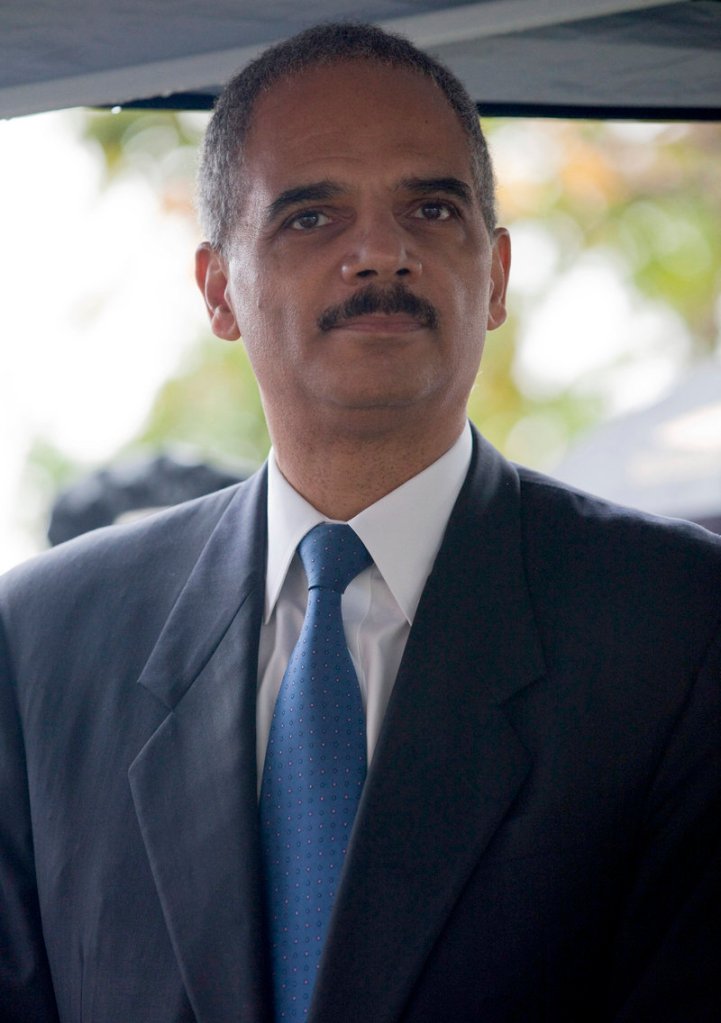SAN FRANCISCO – Attorney General Eric Holder says the federal government will enforce its marijuana laws in California even if voters next month make the state the first in the nation to legalize the drug.
The Justice Department strongly opposes California’s Proposition 19 and remains firmly committed to enforcing the federal Controlled Substances Act in all states, Holder wrote in a letter to former chiefs of the U.S. Drug Enforcement Administration. The Associated Press obtained a copy of the letter, dated Wednesday.
“We will vigorously enforce the CSA against those individuals and organizations that possess, manufacture or distribute marijuana for recreational use, even if such activities are permitted under state law,” Holder wrote.
The attorney general also said that legalizing recreational marijuana in California would be a “significant impediment” to the government’s joint efforts with state and local law enforcement to target drug traffickers, who often distribute marijuana alongside cocaine and other drugs.
He said the ballot measure’s passage would “significantly undermine” efforts to keep California communities safe.
The ex-DEA chiefs sent a letter to Holder in August calling on the Obama administration to sue California if Proposition 19 passes. They said legalizing pot presented the same threat to federal authority as Arizona’s recent immigration law that spurred a federal lawsuit.
If California voters approve the ballot measure, the state would become the first to legalize and regulate recreational pot use. Adults could possess up to one ounce of the drug and grow small gardens on private property. Local governments would decide whether to allow and tax sales of the drug.
The state has clashed with federal authorities over marijuana since 1996, when voters approved a first-of-its-kind ballot measure that allowed people to grow and use pot for medical purposes. Thirteen other states and the District of Columbia have legalized medical marijuana.
Under federal law, marijuana is still strictly illegal. The U.S. Supreme Court has ruled that the federal government has the right to enforce its ban regardless of state law.
During the Bush administration, retail pot dispensaries across the state faced regular raids from federal anti-drug agents. Their owners were sometimes sentenced to decades in prison for drug trafficking.
Yet the medical marijuana industry still grew, and has expanded even more since Holder said last year that federal law enforcement would defer to state laws on using it for medicinal purposes.
Some legal scholars and policy analysts have questioned how much the Justice Department could really do on the ground to halt a state-sanctioned recreational pot trade.
Nearly all arrests for marijuana crimes are made at the state level. Of more than 847,000 marijuana-related arrests in 2008, for example, just over 6,300 suspects were booked by federal law enforcement, or fewer than 1 percent.
Los Angeles County’s top law enforcers said Friday the federal government would still have help from them regardless of the vote’s outcome on Proposition 19.
County Sheriff Lee Baca and District Attorney Steve Cooley said at a news conference that the law would be unenforceable because it is trumped by federal laws that prohibit marijuana cultivation and possession. “We will continue as we are today regardless of whether it passes or doesn’t pass,” Baca said.
Send questions/comments to the editors.




Success. Please wait for the page to reload. If the page does not reload within 5 seconds, please refresh the page.
Enter your email and password to access comments.
Hi, to comment on stories you must . This profile is in addition to your subscription and website login.
Already have a commenting profile? .
Invalid username/password.
Please check your email to confirm and complete your registration.
Only subscribers are eligible to post comments. Please subscribe or login first for digital access. Here’s why.
Use the form below to reset your password. When you've submitted your account email, we will send an email with a reset code.